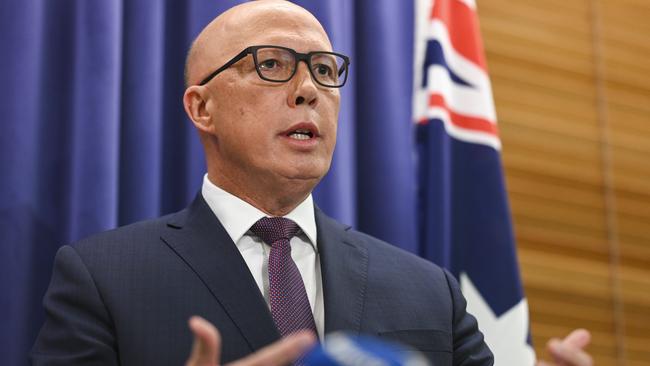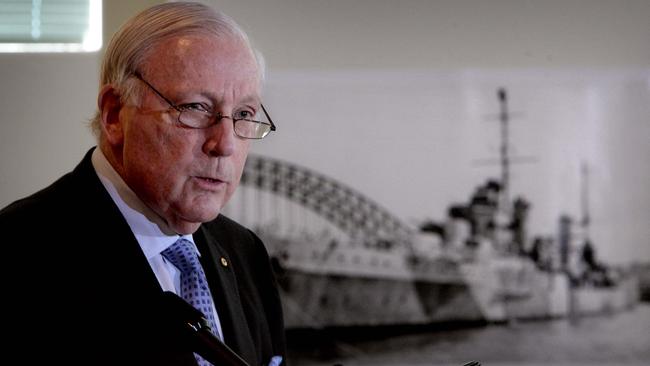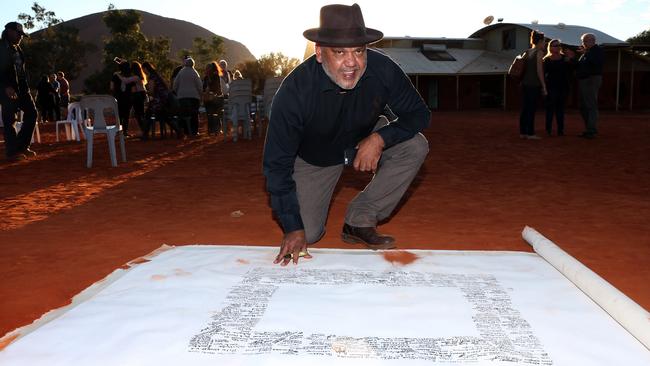Akerman: Detailed legal analysis reveals Voice ‘rests on race’ and is inherently divisive
Anthony Albanese has thrown the Liberals a lifeline with his blind support for the racial discrimination enshrined in the Voice referendum proposal, writes Piers Akerman.
Opinion
Don't miss out on the headlines from Opinion. Followed categories will be added to My News.
Labor Prime Minister Anthony Albanese has thrown the Liberal Party a lifeline with his blind support for the racial discrimination enshrined in the Voice referendum proposal.
Opposition Leader Peter Dutton needed a standout policy difference and he has now been gifted one.
Voice supporters went nuts, particularly Noel Pearson, who lacked civility with unprincipled attacks on Dutton.
No depths appear to be too low for the Yes leaders who claim to take the moral high road.
A bare minimum of Australians back the current proposal to lock the Indigenous-only body into the Constitution without telling how it would work. Dutton has now ensured a wider examination of this pig-in-a-poke referendum.

One who has undertaken a serious study of this is Terence Cole, a former NSW Court of Appeal judge, later appointed royal commissioner by the Commonwealth into the building and construction industry and then the UN Oil-for Food Program, and who also conducted a federal inquiry into the loss of HMAS Sydney.
Space doesn’t permit presentation of his full findings so I shall summarise them. He thoroughly examined the three demands of the Uluru Statement which Albanese has accepted entirely – the Voice, a Makarrata Commission, and “truth telling about our history”.

When voting to amend the Constitution to incorporate the Voice, Australians must understand that they’re being asked to support demands for recognition of co-existing sovereignty, a Makarrata Commission designed to produce a treaty and monetary compensation, as well as a rewriting of Australian history.
Cole begins with an expert analysis of the constant claim that Aboriginal “ownership of the soil, or better, of sovereignty” based on prior occupation, “has never been ceded or extinguished and co-exists with the sovereignty of the Crown”.
But this Indigenous sovereignty is not sovereignty as normally understood, he writes.
According to the Uluru Statement, it is a spiritual notion: “The ancestral tie between Aboriginals and the land, or ‘mother nature’, and the Aboriginal and Torres Strait Islander people who were born therefrom, remain attached thereto, and must one day return thither to be united with our ancestors. This link is the basis of ownership of the soil, or better, of sovereignty. It has never been ceded or extinguished, and co-exists with the sovereignty of the Crown.”

He notes with regret that the quoted passage was plagiarised without acknowledgement from a 1975 ruling of the International Court of Justice that concerned the people of the Western Sahara.
Australian courts have consistently rejected the existence of Aboriginal and Torres Strait sovereignty, he says, citing High Court Justice Stephen Gageler in the case of Love v Commonwealth.
Cole also dissects and disagrees with a recent opinion of former High Court Chief Justice Robert French who argued that two different “sovereignties” can exist. The Indigenous concept of “sovereignty” can, in reality, have no effect or application in Australian law, Cole writes.
The statement’s second claim for a Makarrata Commission and a treaty, he says, are based solely on race and split Australians into two groups – on a permanent basis. The first group comprises those identifying as Aboriginals and Torres Strait Islanders. The remaining 97 per cent of Australians are the second.

Despite Chief Justice French’s view that the Voice “does not depend on race”, Cole stresses that it only represents Aboriginals and Torres Strait Islanders, and those who elect the representatives who will become the Voice are exclusively of the Aboriginal and Torres Strait races.
“Unless you are of the Aboriginal and Torres Strait Islander race, Australians can play no part in any aspect of the Voice. Those who would benefit from the proposed Voice are exclusively Aboriginal and Torres Strait Islanders,” he states.
“To my mind, it departs from reality to contend that the Voice does not rest upon race. It addresses only people of those races.”
He suspects the clue to the push for a Yes vote may lie in the fifth objective, the concluding of agreements with governments, which may have significant monetary consequences.
His conclusion: It is difficult to contemplate a process more designed to cause dissent and disunity within the Australian community.
This is certainly not the minimal change that Albanese claims, it is an attempt to install a race-based clause in the Constitution which will make those identifying as Indigenous permanent victims of past injustices with access to limitless reparation claims.





